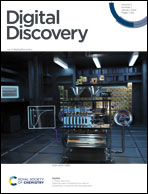Progress and future of the computational design of antimicrobial peptides (AMPs): bio-inspired functional molecules
Abstract
The effectiveness of antibiotics is greatly enhanced by their ability to target invasive organisms involved in the ancient evolutionary battle between hosts and pathogens. Conventional antibiotics no longer offer adequate protection due to the evolution of strategies to evade them. As a result, efforts are needed to design novel replacement antibiotics, making them unique from most other forms of drug development. As drug discovery costs have steadily increased along with the need for novel antibiotics, the interest in antimicrobial peptides (AMPs) as alternative antimicrobial treatments has grown in recent years. As a complement to experimental high-throughput screening, computational methods have become essential in hit and lead discovery in pharmaceutical research. It may be possible to access unexplored chemical space with customized virtual compound libraries. It has been questioned whether screening billions of molecules virtually with the risk of false positives is practical despite their unlimited potential size. In terms of finding novel chemical compounds capable of solving many global problems, machine learning, deep learning, and generative models hold significant promise. It is anticipated that the current challenges and limitations about the applicability of the stated approaches will be overcome in the coming years. However, plenty of advances are still required to achieve their full potential. In this perspective, we review the previous and ongoing work based on the latest scientific breakthroughs and technologies that could offer new opportunities and alternative strategies for developing novel AMPs.



 Please wait while we load your content...
Please wait while we load your content...